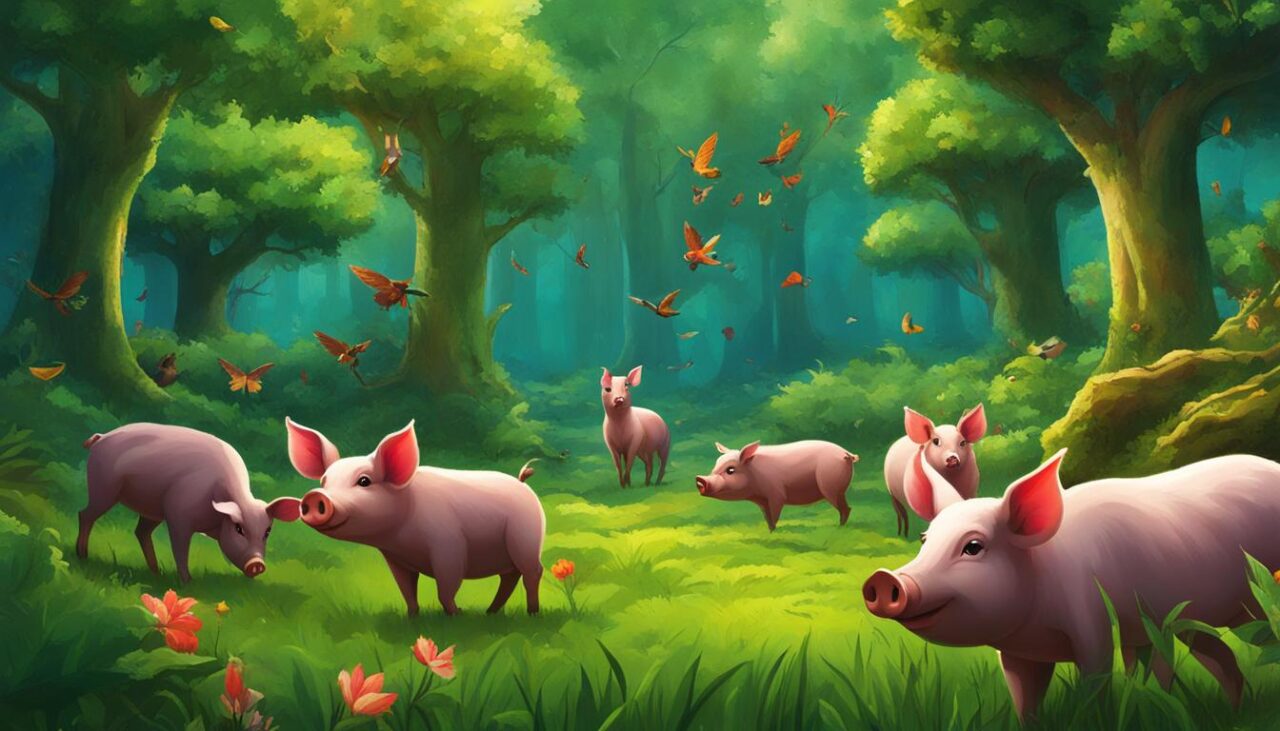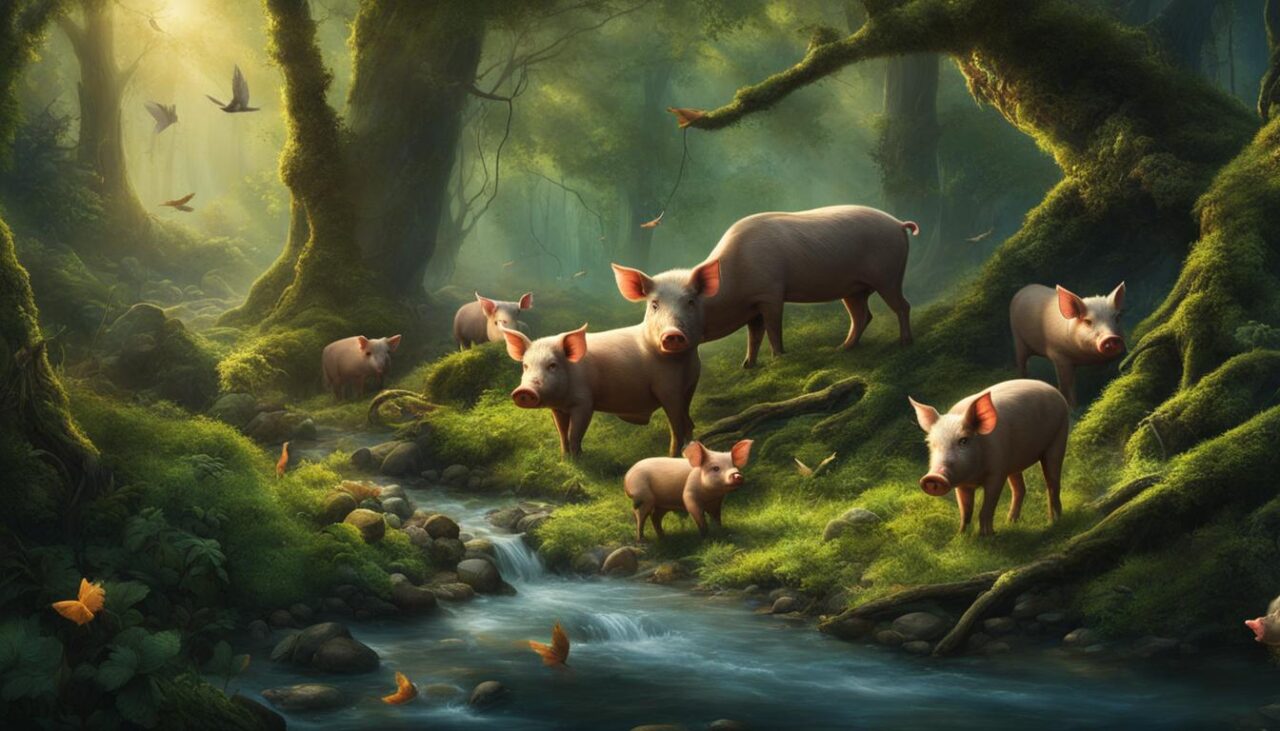Welcome to the captivating world of animal ecosystems. In this section, we will take a closer look at the roles that pigs and other animals play in nature's delicate balance. At the heart of animal ecosystems lies biodiversity, which refers to the variety of living organisms present in a particular ecosystem. A healthy, sustainable ecosystem depends on the interdependent relationships between diverse wildlife species. We will explore how the ecological roles of animals like pigs contribute to the greater functioning of their respective ecosystems, shaping the world that we know and love today.
Contents
Key Takeaways
- Biodiversity is essential to the proper functioning of animal ecosystems
- The ecological roles of pigs and other animals vary greatly, from seed dispersal to predation control
- Maintaining healthy natural habitats is crucial to preserving sustainable ecosystems
- The interactions between wildlife species in an ecosystem are vital to maintaining nature's delicate balance
- Understanding animal ecosystems can help us work towards sustainable, resilient, and healthy environments for all living organisms
The Importance of Biodiversity in Animal Ecosystems
Biodiversity is a critical component of maintaining healthy and functioning animal ecosystems. Without a diverse range of plant and animal species, ecosystems can become vulnerable to disruptions and imbalances. Pigs are just one example of a species that plays an essential role in maintaining the biodiversity of animal ecosystems. They help with soil aeration and nutrient distribution, which support the growth of a diverse range of plant species.
Moreover, pigs are an important food source for predators and scavengers that help balance the population of other species within their ecosystem. The interdependence of different species within animal ecosystems is a perfect example of how biodiversity is necessary to maintain a delicate balance in nature. Without it, animal ecosystems would lack resilience and be more susceptible to disturbances such as diseases and climate change.

“The variety of life in nature is a fundamental value, and the loss of biodiversity is one of the most serious environmental challenges we face.” – United Nations
By recognizing the importance of biodiversity in animal ecosystems, we can work towards preserving and restoring natural habitats that support a diverse range of plant and animal species. This involves promoting sustainable agriculture and limiting human activities that cause habitat destruction and fragmentation. In doing so, we can protect animal ecosystems and maintain the balance of nature for future generations.
Ecological Roles of Pigs and Other Animals
In animal ecosystems, each species has a specific ecological role to play. For pigs and other animals, their contributions are integral to maintaining the balance and vitality of their respective ecosystems. Let's take a closer look at these roles:
- Seed dispersal: Many animal species, including pigs, play a critical role in seed dispersal. As pigs move through their habitats, they scatter plant seeds through their feces, helping to create new plant life and maintain biodiversity.
- Nutrient cycling: Animals contribute to the cycling of essential nutrients within ecosystems. Pigs, for example, consume plants and other organisms, returning nutrients to the soil through their waste.
- Habitat creation: Animals such as beavers and elephants can directly shape their habitats by creating dams, burrows, and other structures. These habitats provide homes and resources for other species.
- Predation control: Many animal species, including pigs, help control populations of other animals through predation, maintaining the balance of ecosystems.
These examples are just a few of the many ways that pigs and other animals contribute to sustaining the health and resilience of animal ecosystems. By fulfilling their ecological roles, these animals help to preserve natural habitats and promote biodiversity.

Conclusion
In conclusion, it is crucial to understand the significance of natural habitats and their role in maintaining wildlife ecosystems. Sustainable ecosystems are essential, and it is our responsibility to work towards preserving nature's delicate balance. By promoting biodiversity and recognizing the ecological roles that animals such as pigs fulfill, we can ensure the long-term vitality of our planet's ecosystems.
It is vital to remember that our actions have a direct impact on nature's balance. We must make responsible choices and adopt sustainable practices to reduce our impact on the environment. By doing so, we can create a future where wildlife ecosystems thrive, and natural habitats are preserved for generations to come.







